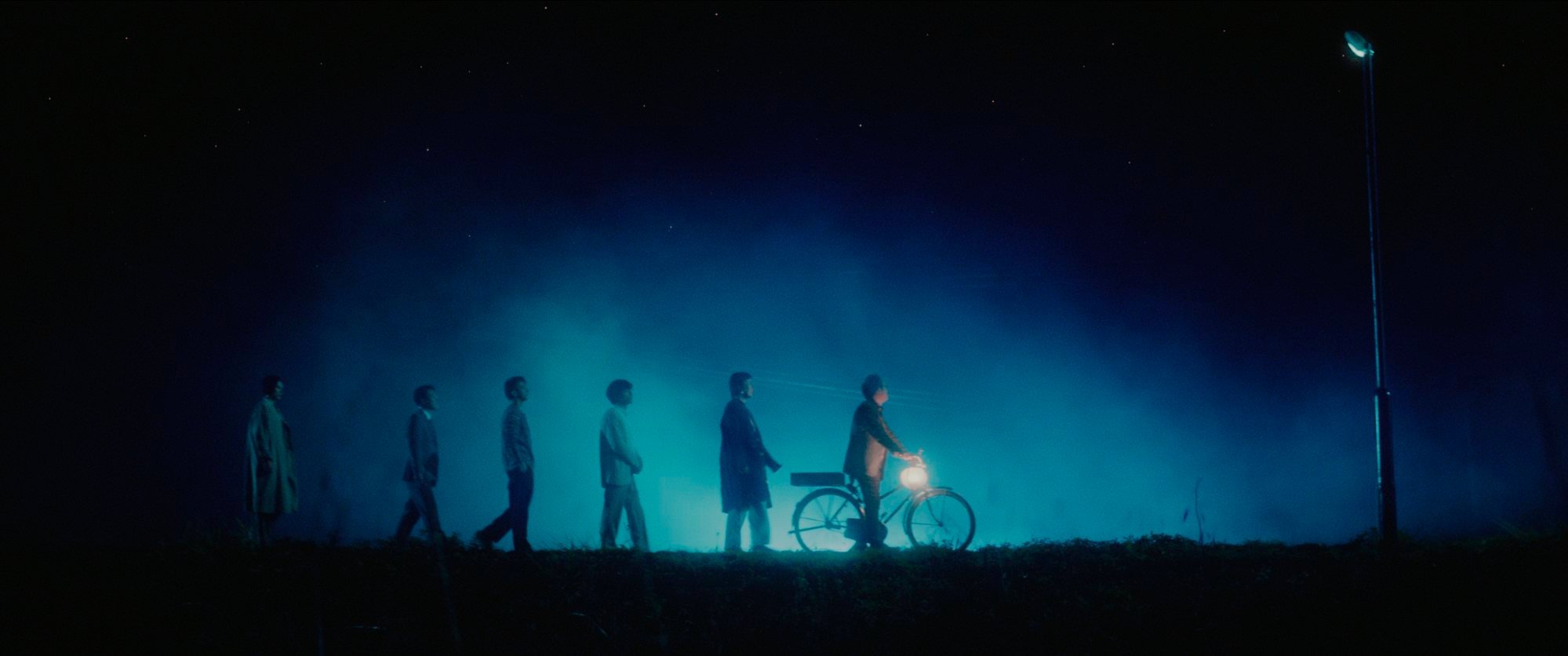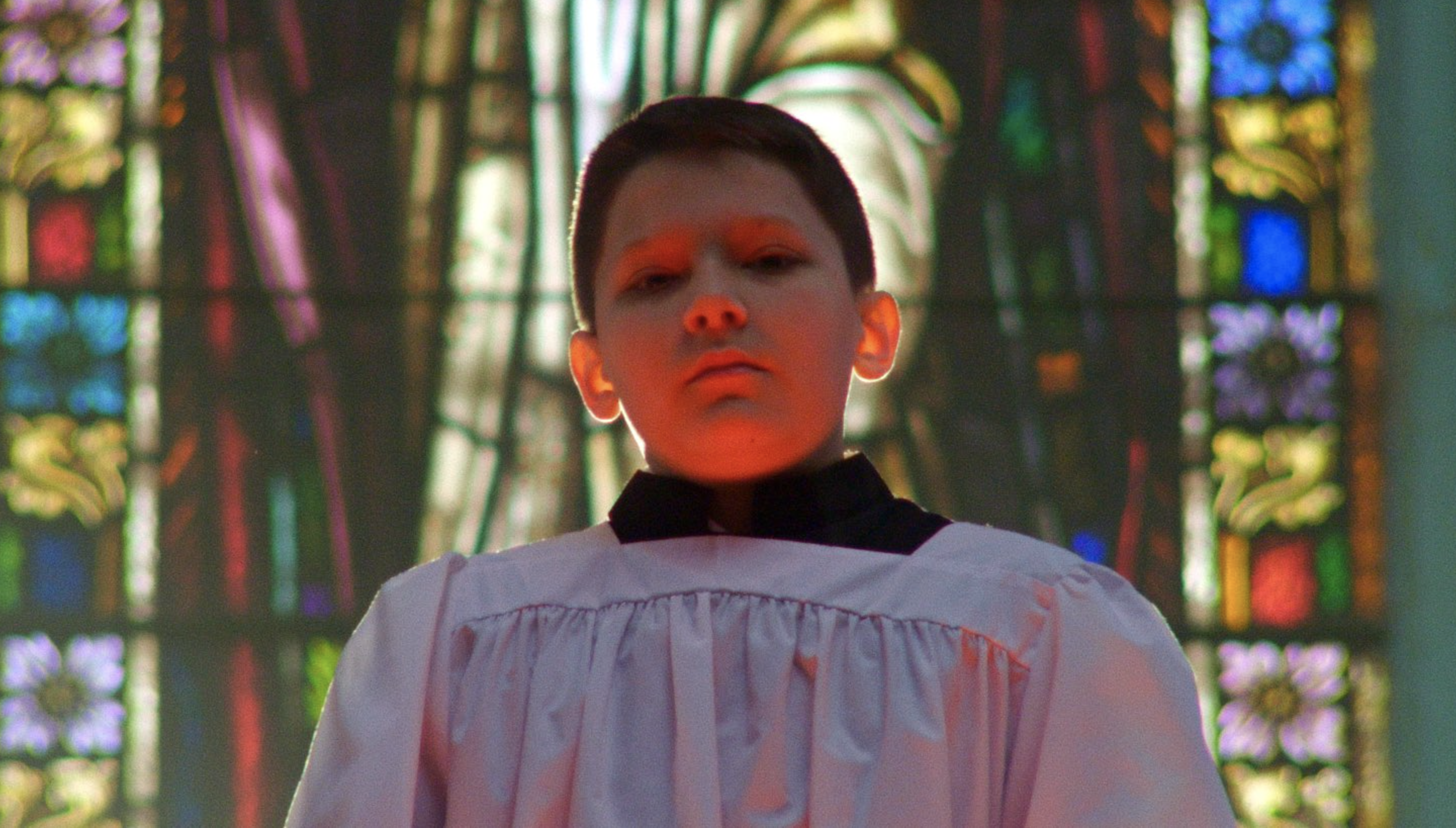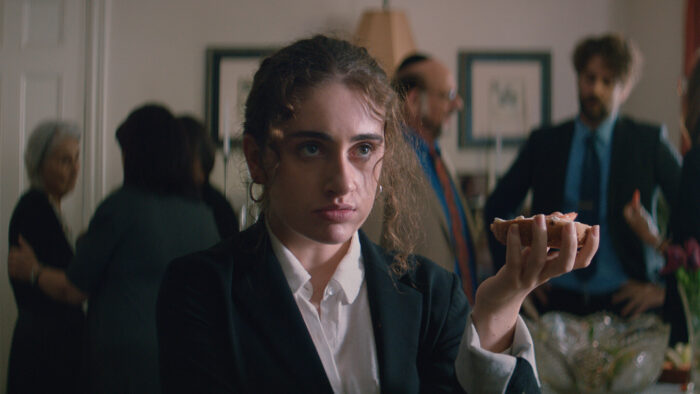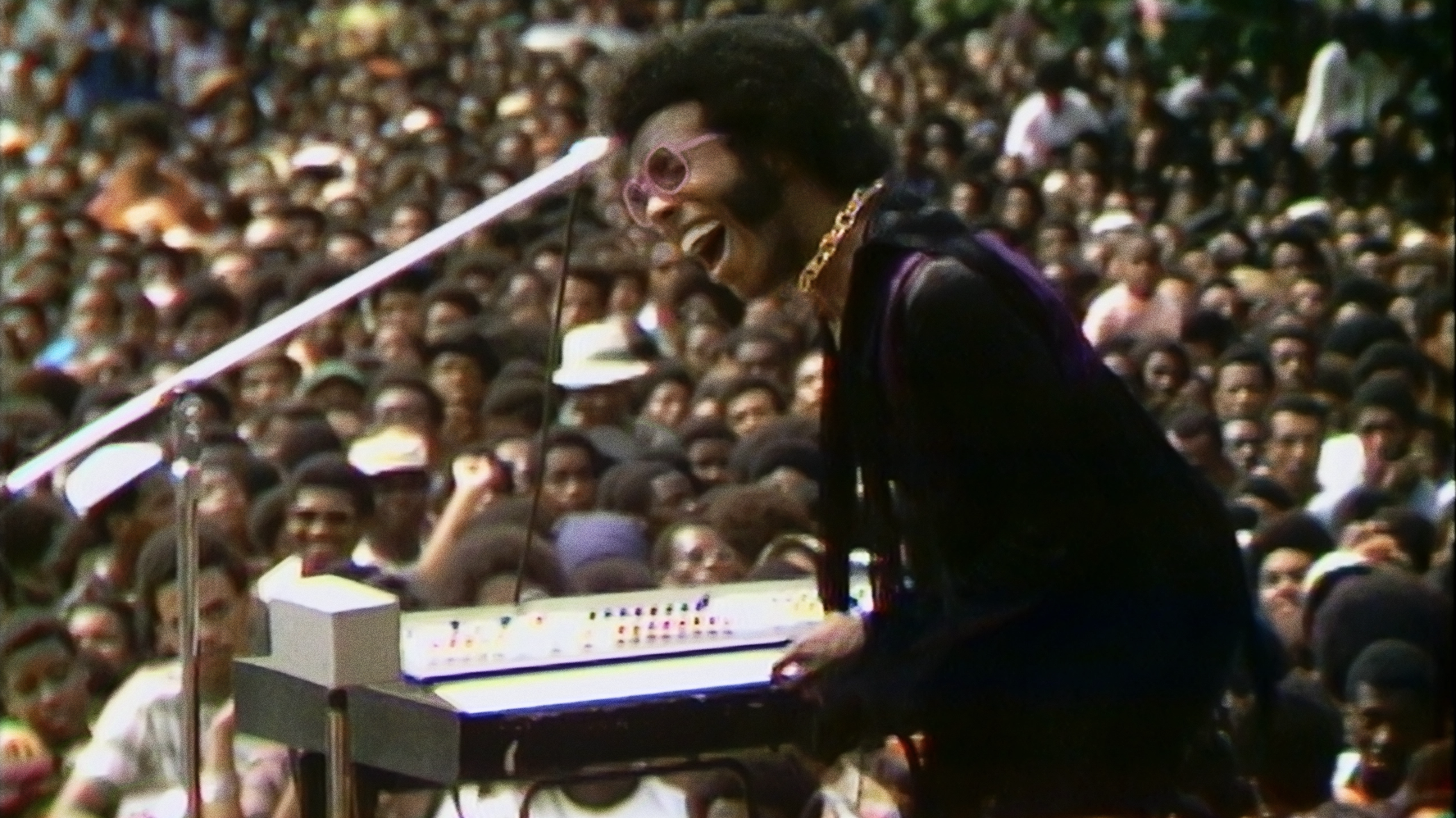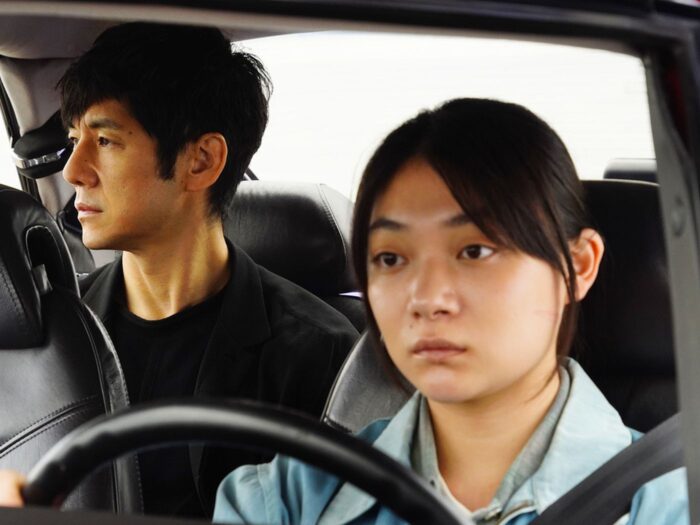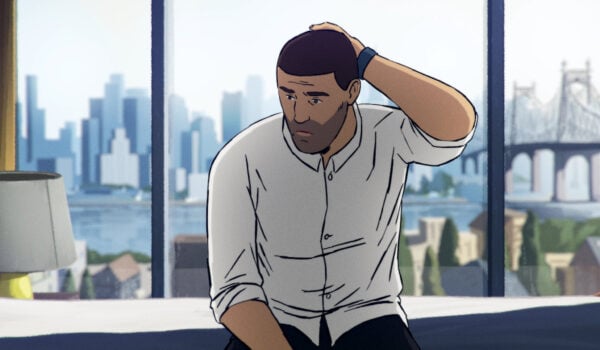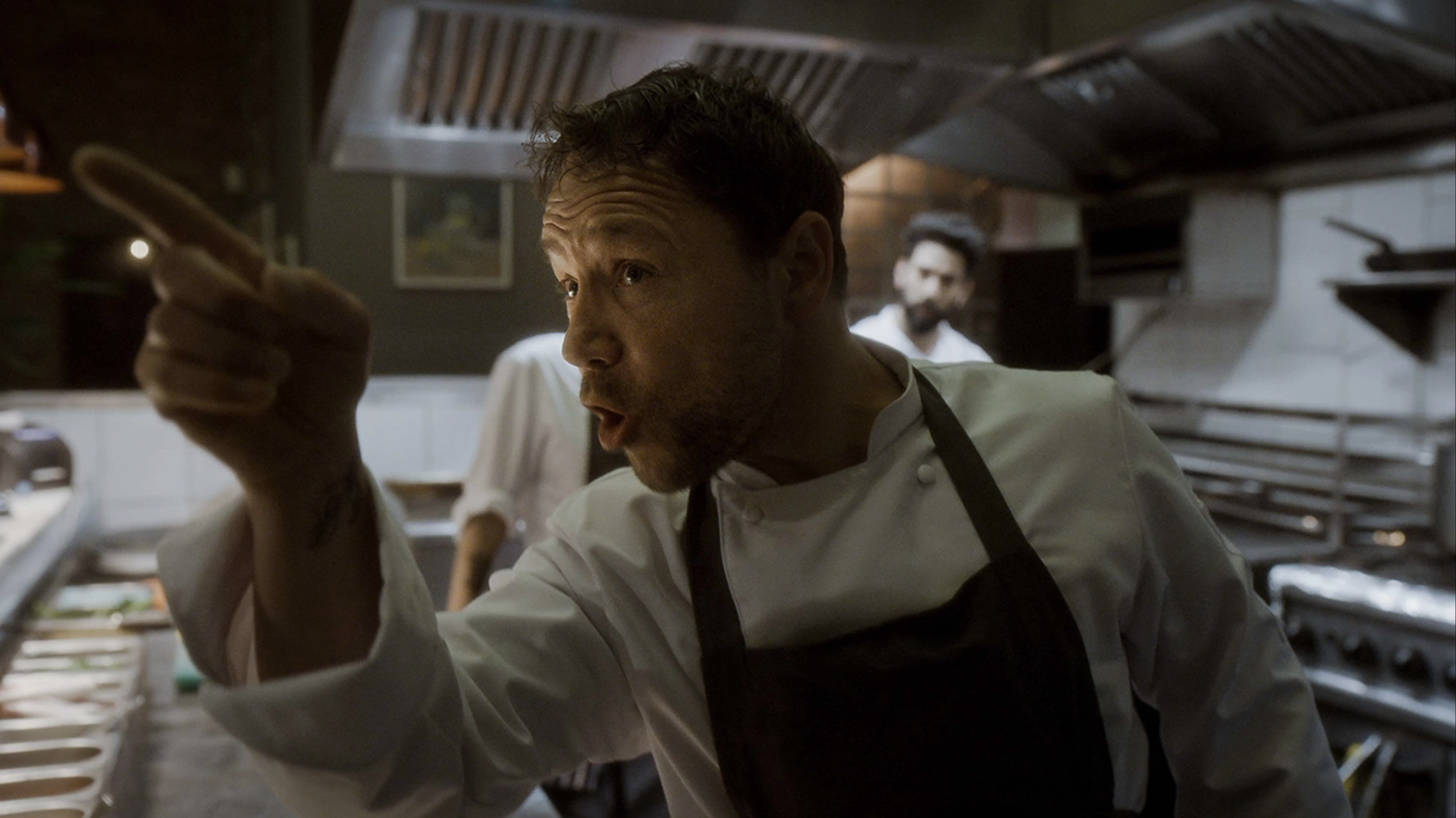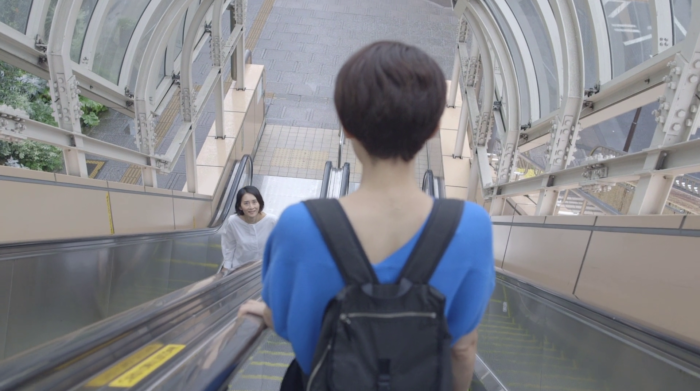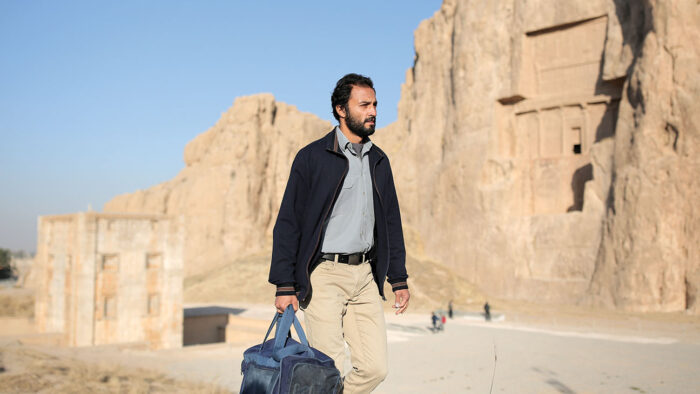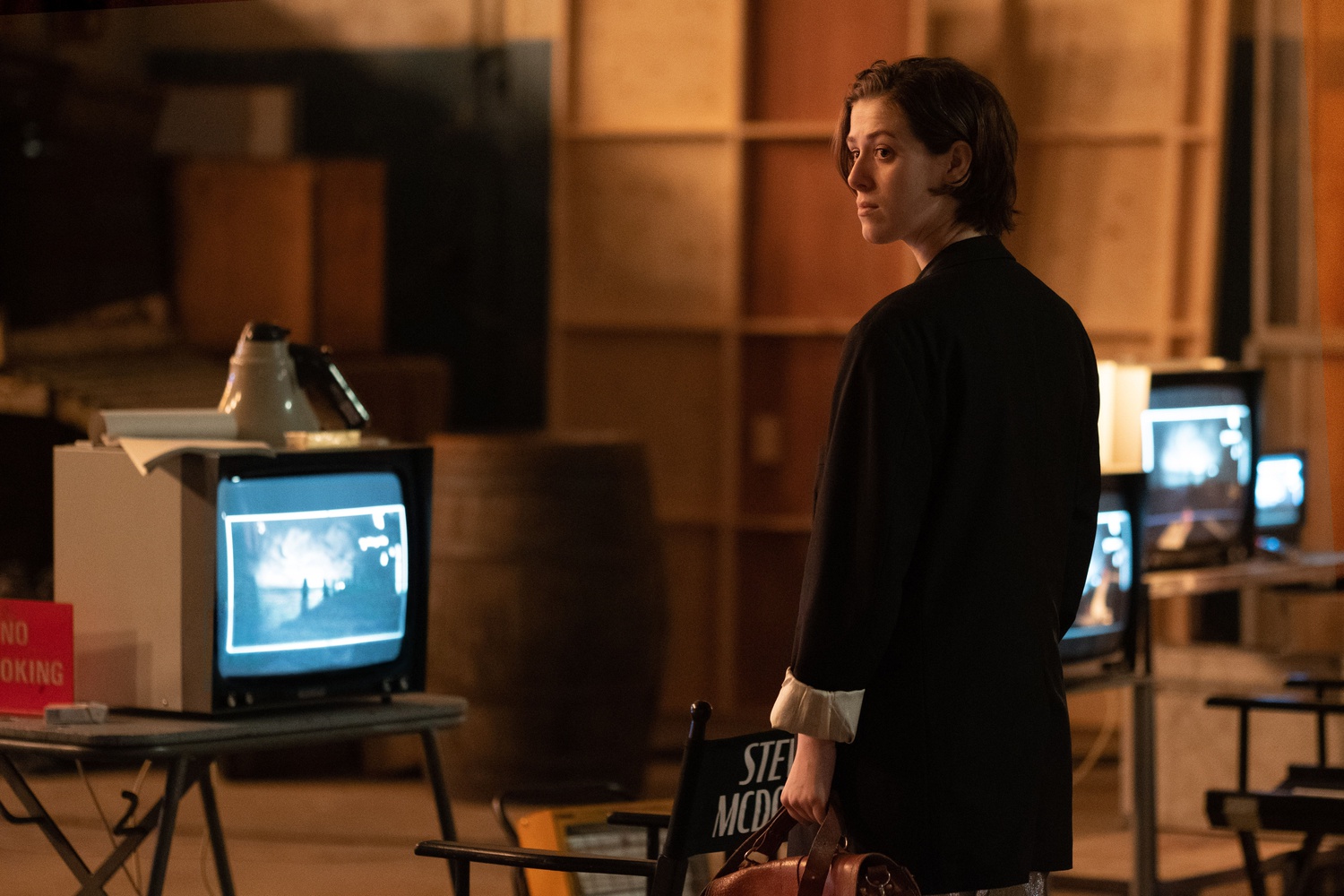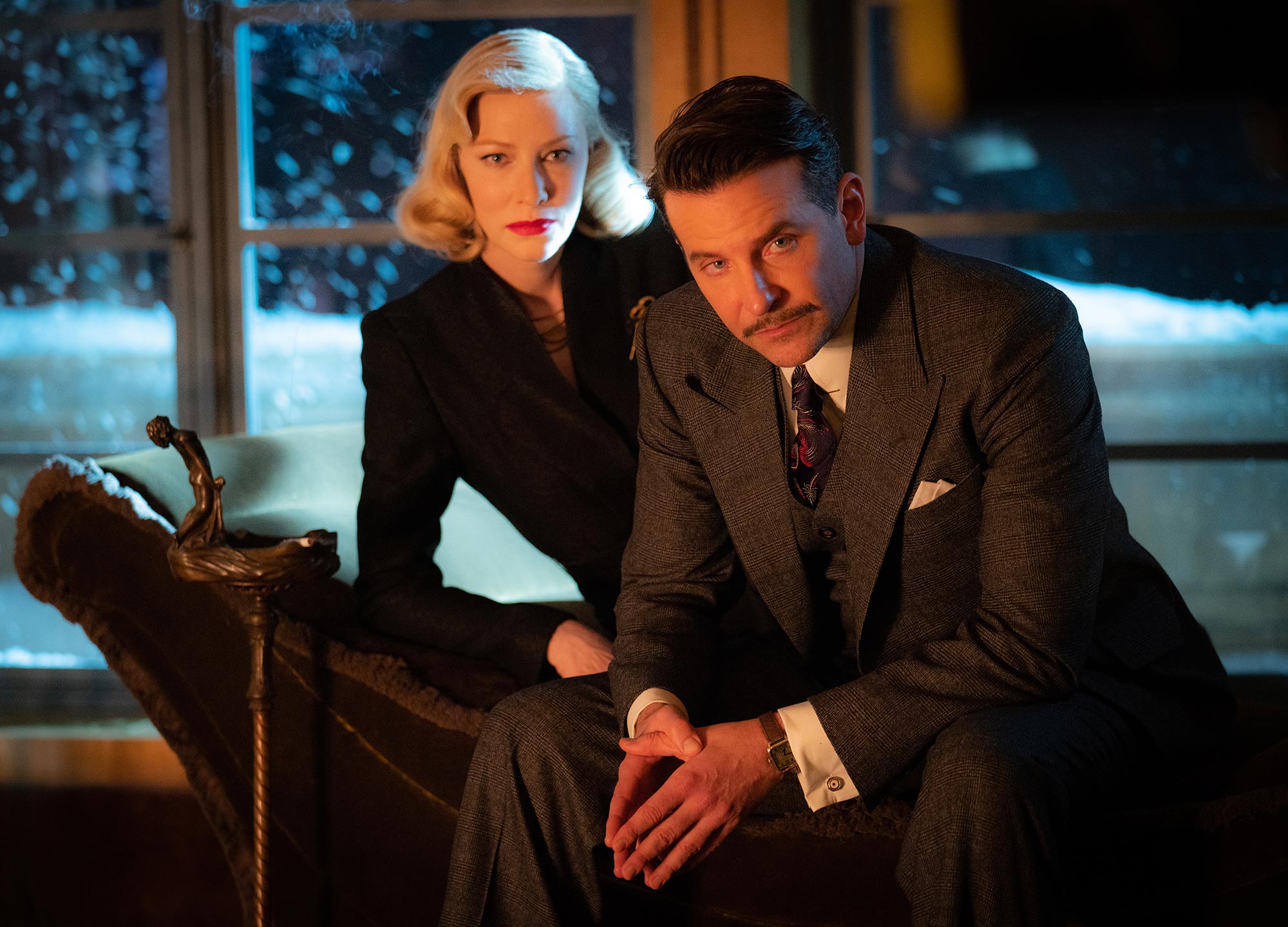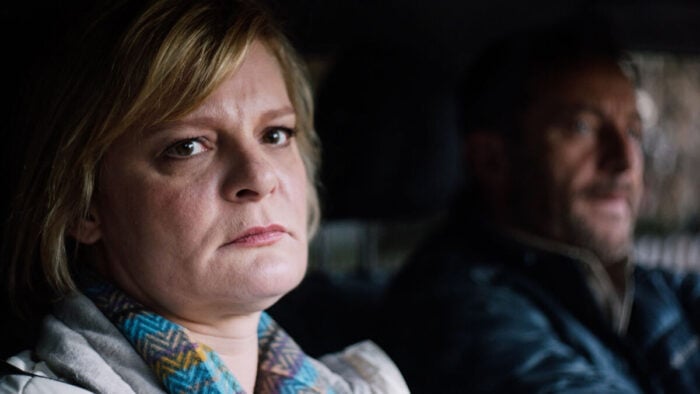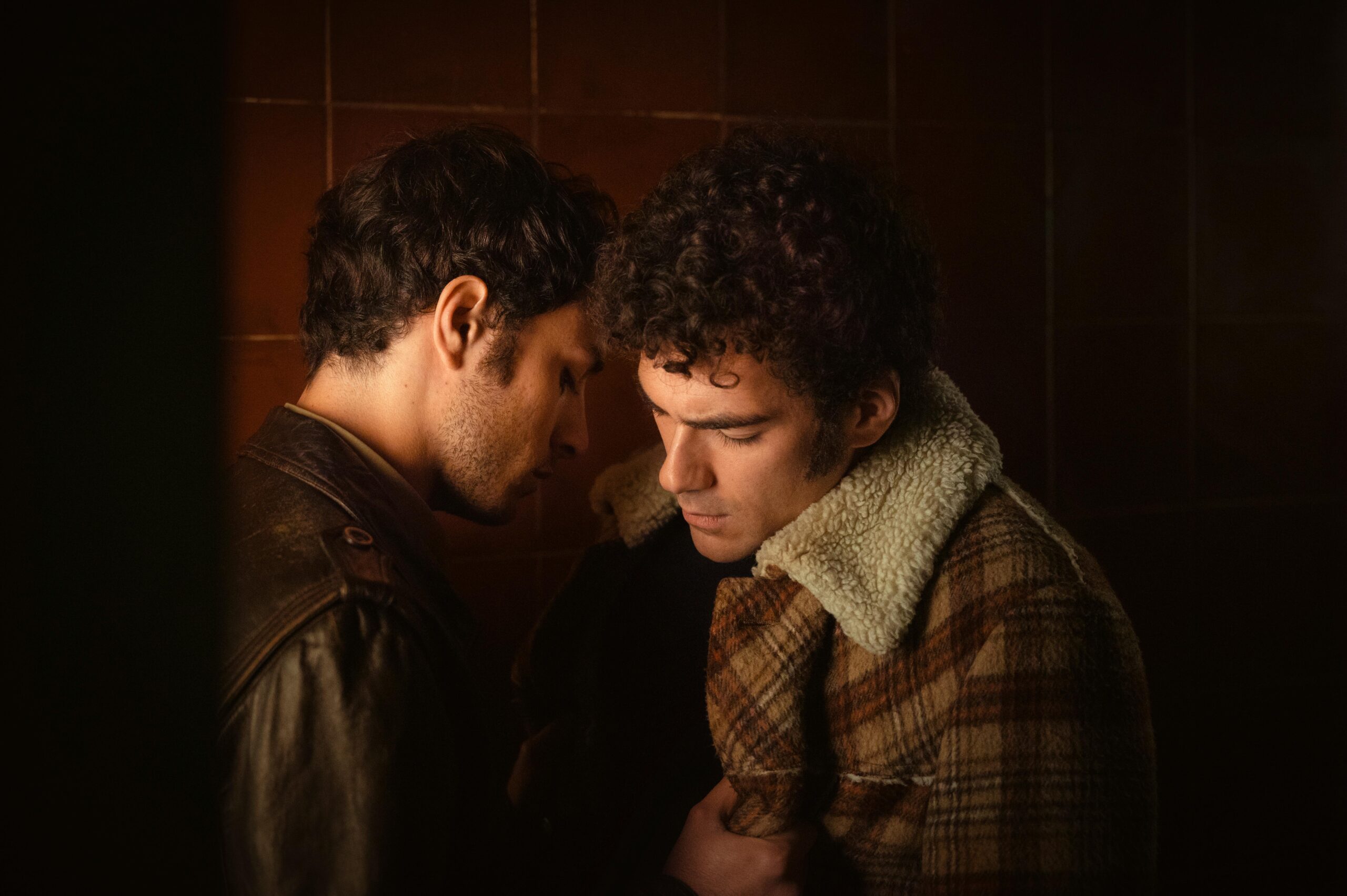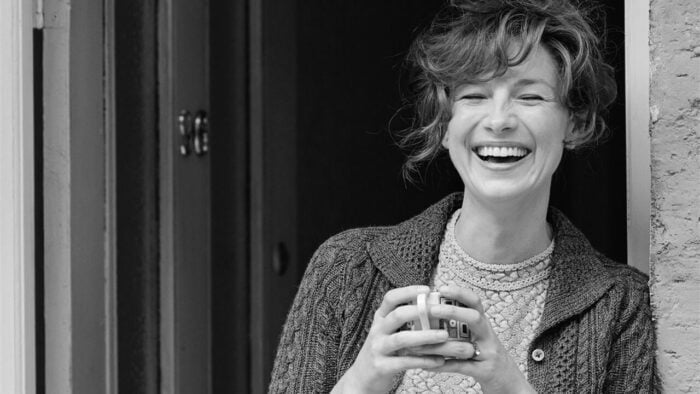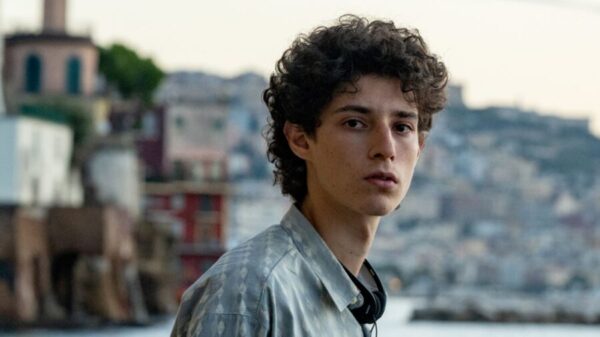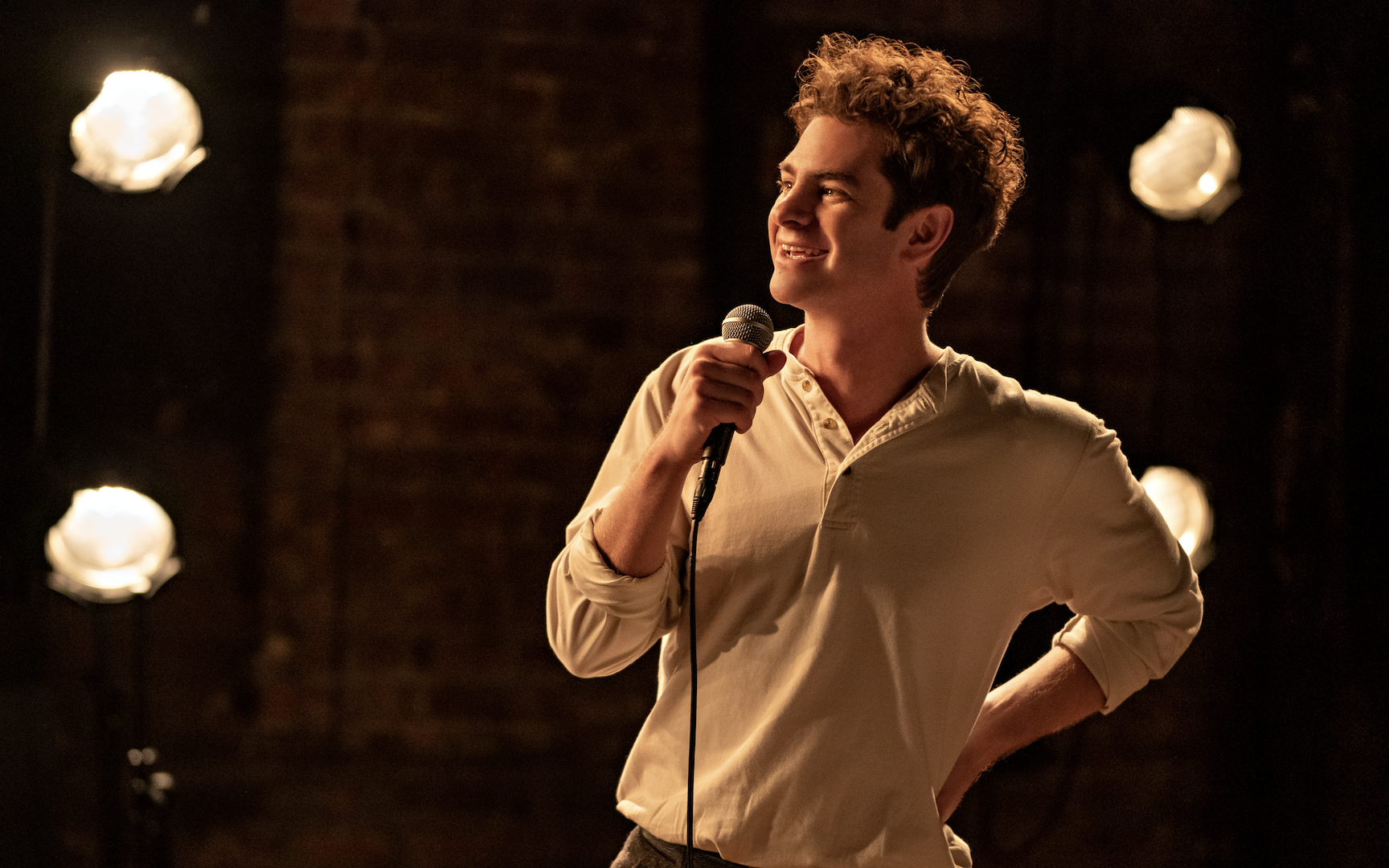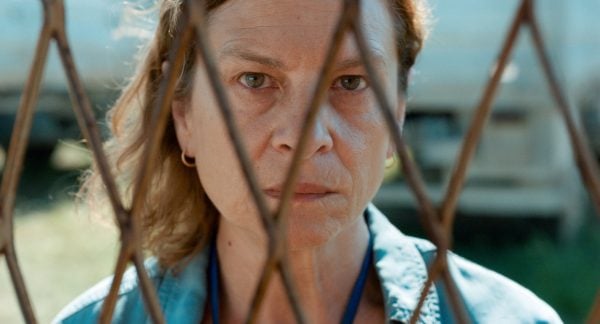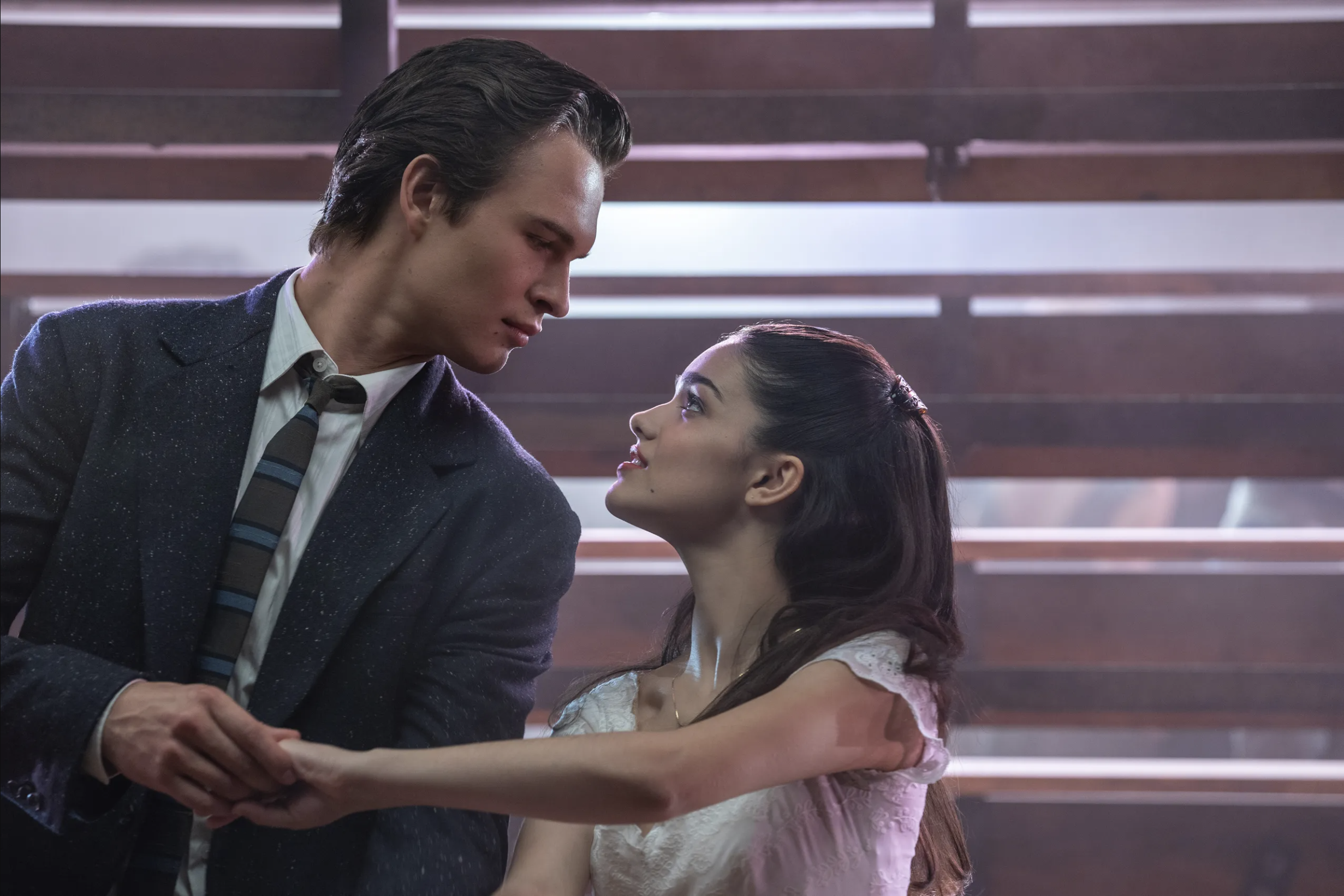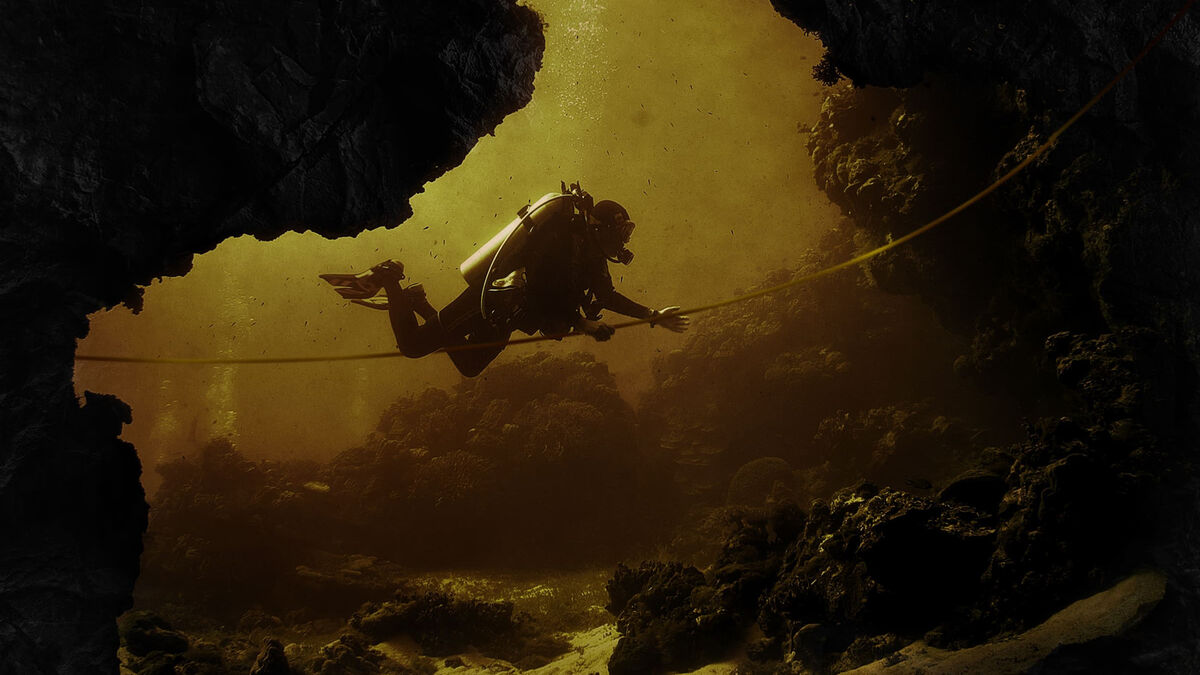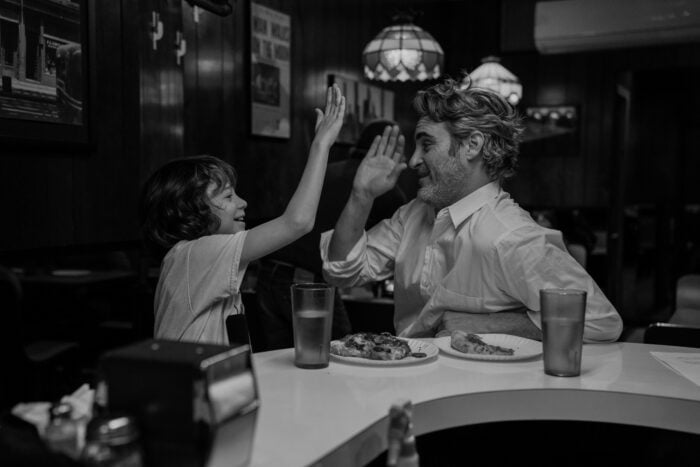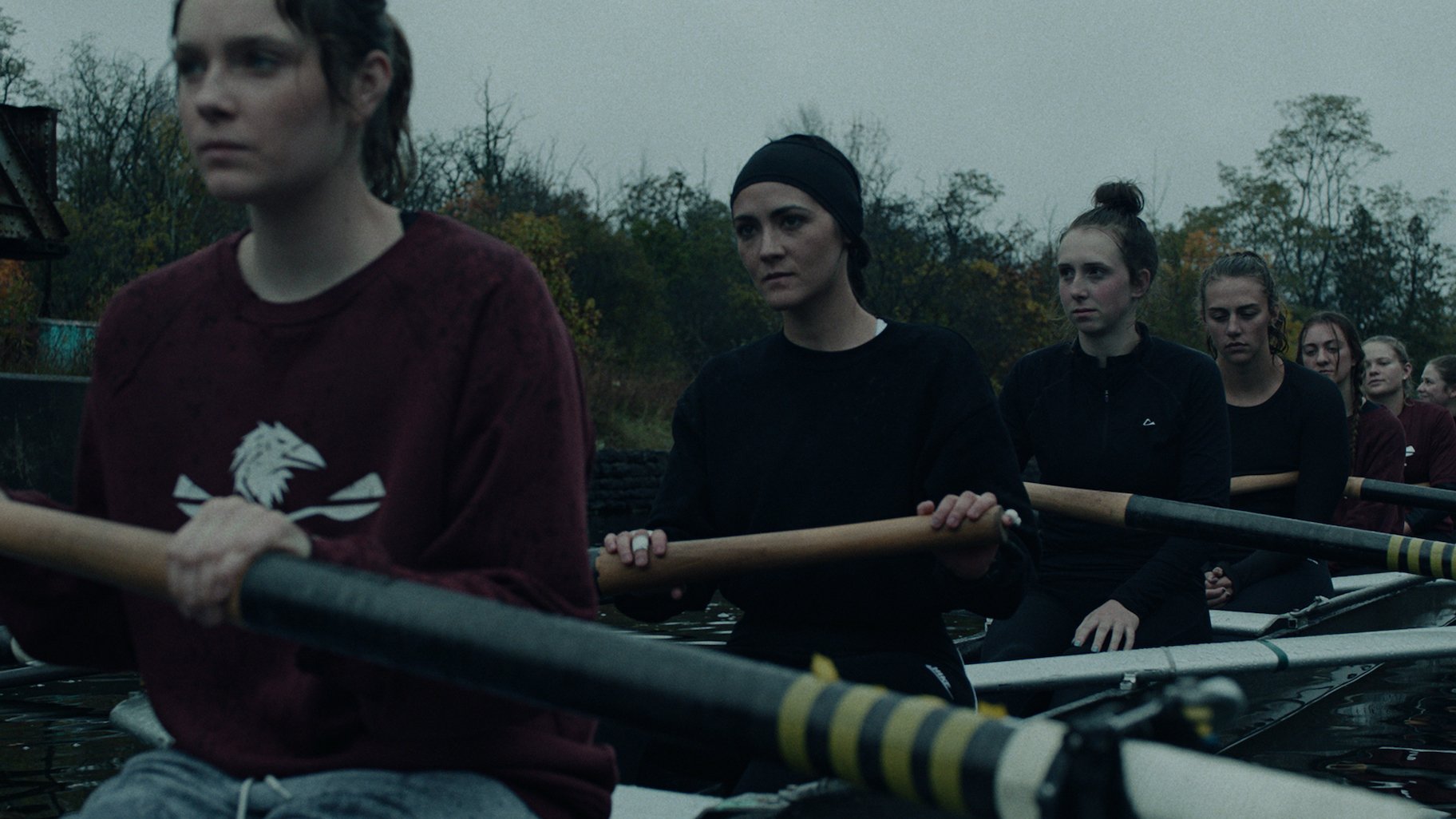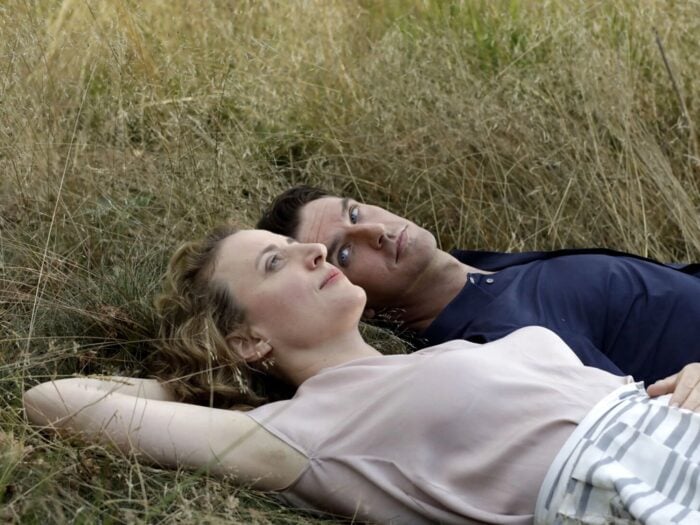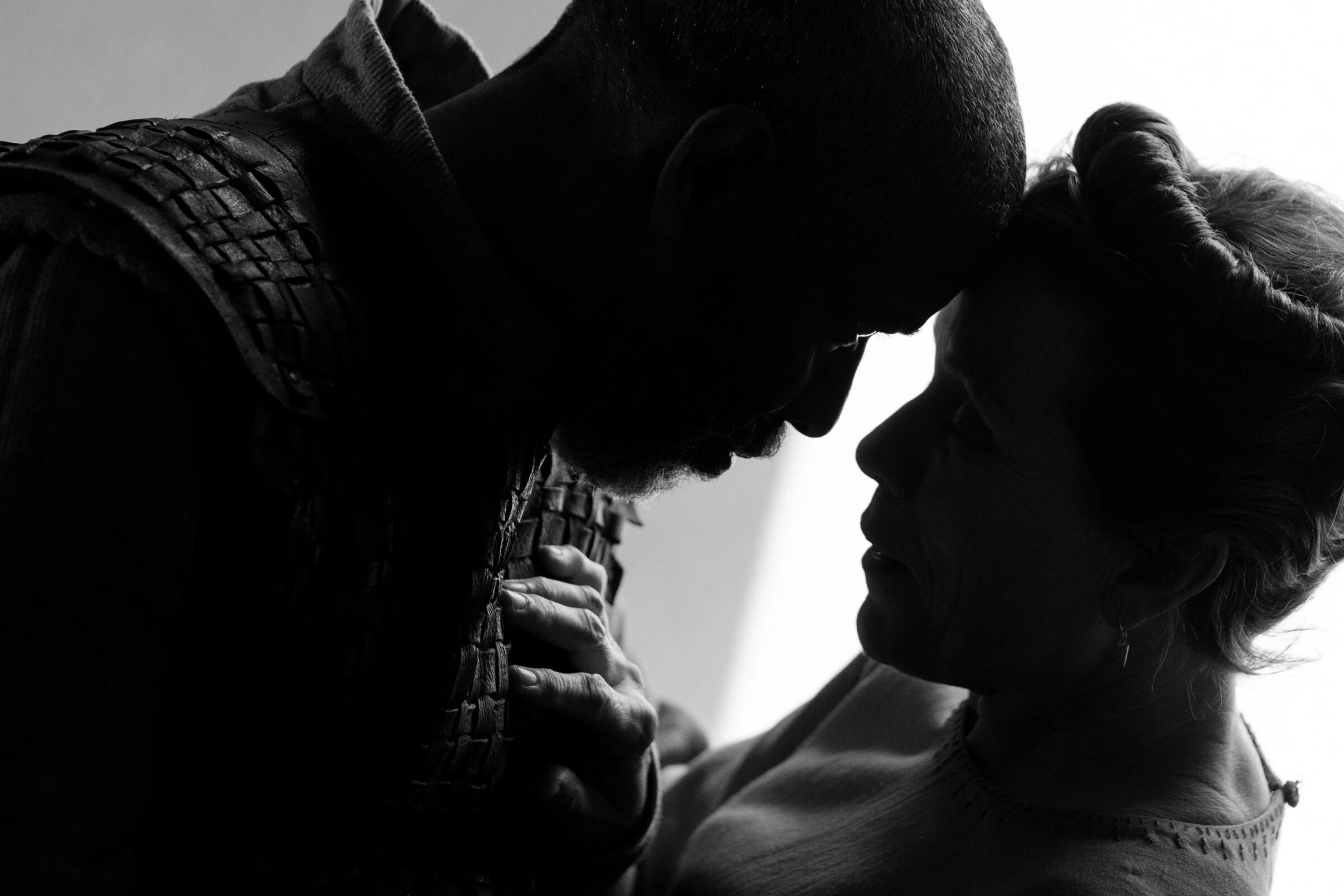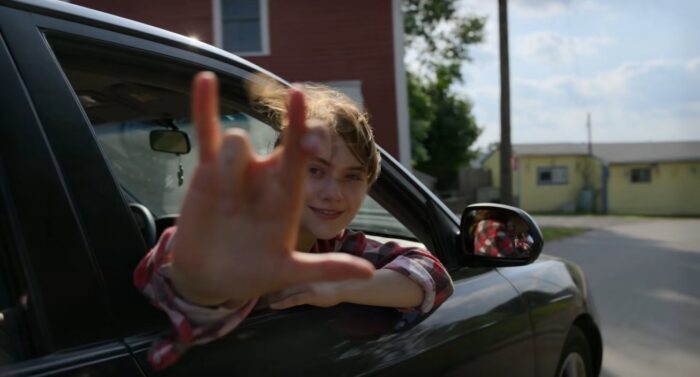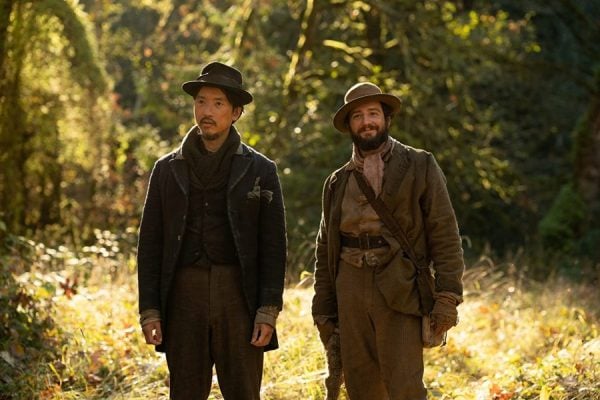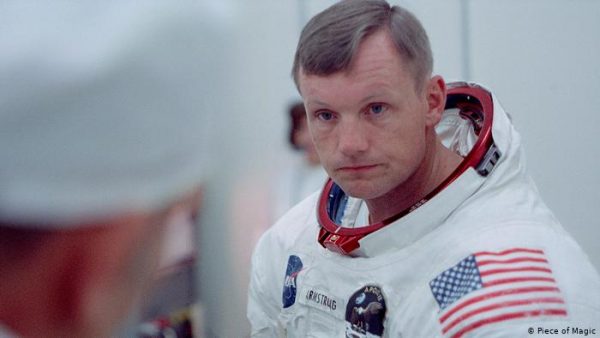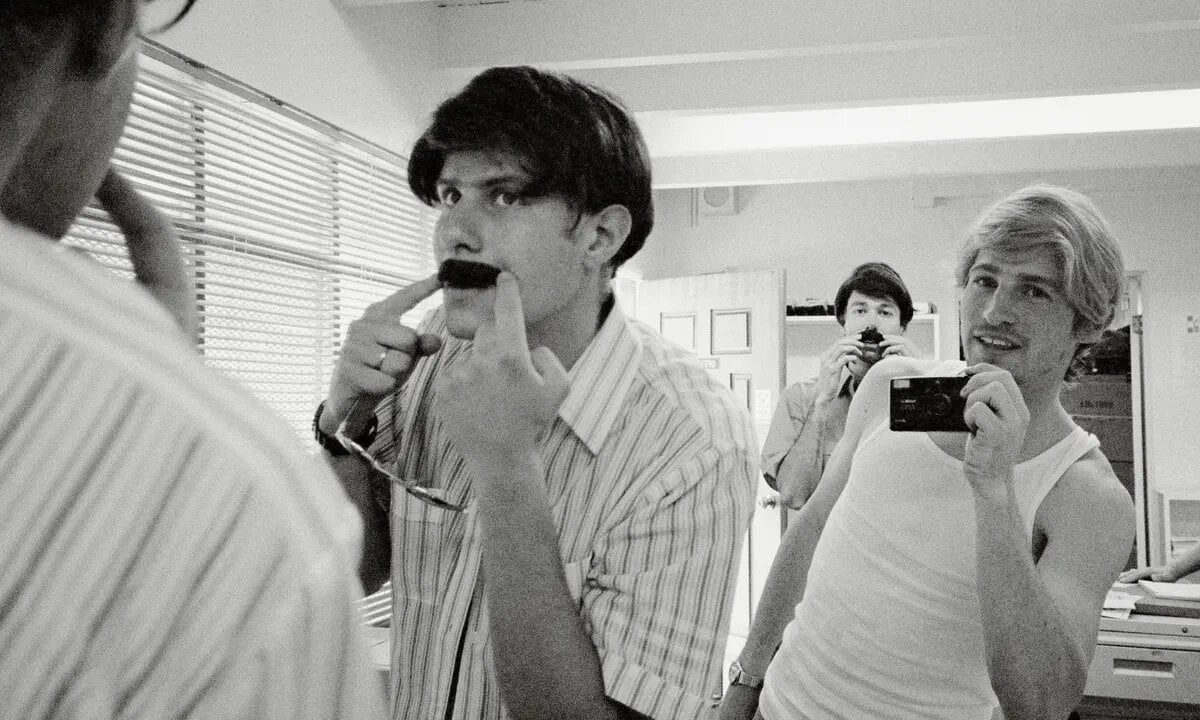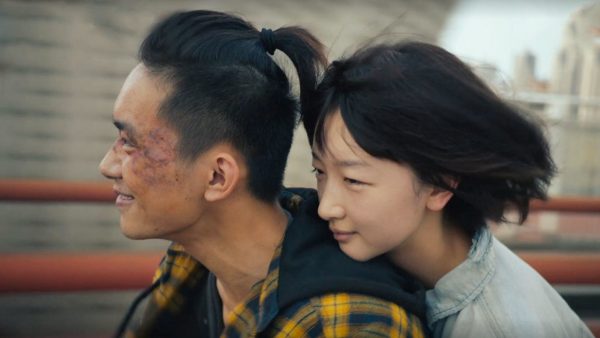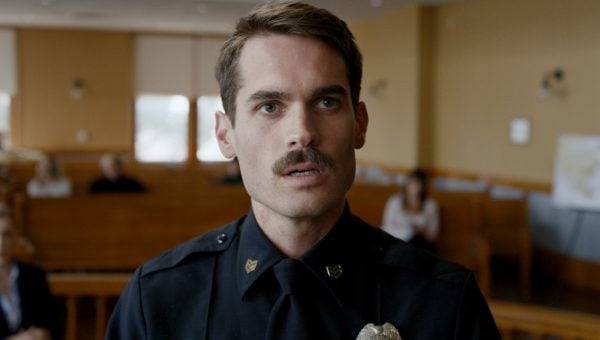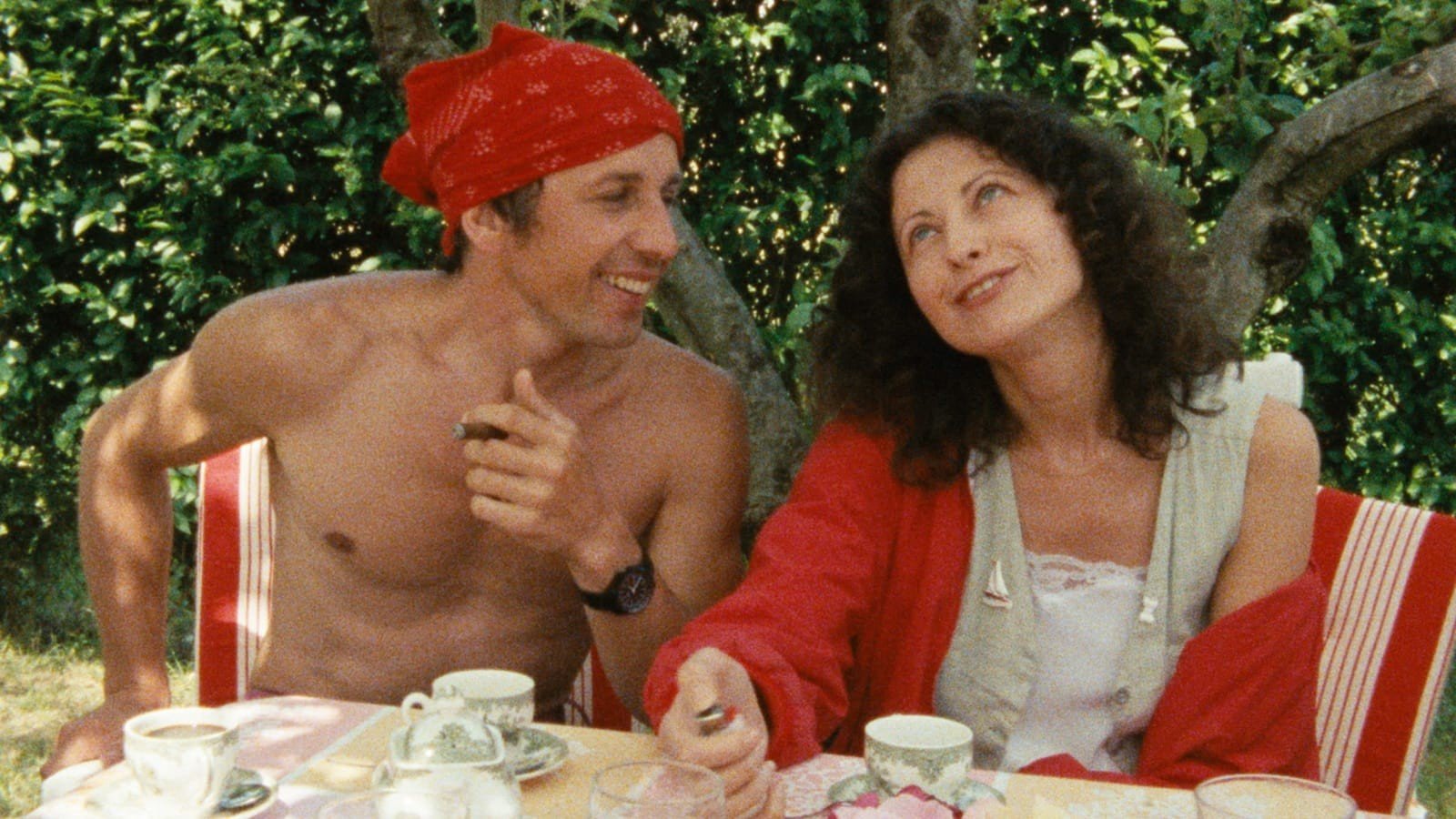Movies Like The Lost Daughter (2021)
At the peak of his fame in the 80s, Christopher Reeve was constantly seen as his onscreen character, Superman. Like him, Reeve could fly (planes). He was full of charm and stood for what was right. But in this revealing documentary, we learn the whole truth about Reeve; his troubled childhood, his initial struggles with […]
Fire of Love is a documentary that follows Maurice and Katia Krafft, a scientist couple who’ve dedicated their entire professional lives to studying (and marveling at) volcanoes. The two met at university and have been inseparable ever since, chasing explosions around the world until their death at the Mount Unzen eruption in 1991. The fiery […]
The film opens with Julie in her early twenties, longing to pursue a career in medical school. But after briefly testing the waters, she switches over to psychology, only to drop completely out of school and transform her hobby of photography into a professional career. This indecisiveness carries over in most aspects of her life, […]
When it comes to ghosts, plenty of films are centered around personal, unresolved business in the living world, but rarely do films examine how the spirit world would be, unless it’s for fantastical fights or horrific terror. The Parades instead focuses on a world of lost, but ordinary, and thankfully kind, souls. And as the […]
Difficult but essential viewing, Procession tracks the progress of six men undergoing art therapy—specifically, by creating short filmed scenes to process their trauma from being sexually abused by Catholic priests. The resulting films we get to see are wildly varied in the emotions they express, forming a rich and powerful tapestry of the effects abuse […]
A young bisexual woman attends a shiva, caught between her parents and their expectations, her ex, and her sugar daddy. Rachel Sennott’s Danielle is yet to find her path in life and everyone is determined to remind her of that. Taking place almost entirely in real-time, the film’s sharp wit is contrasted with constant anxiety, […]
Summer of Soul would already be remarkable if it was just a collection of some of the greatest live performances ever put to film. Boasting a roster that includes Stevie Wonder, Nina Simone, Gladys Knight, and Sly and the Family Stone, the nearly-forgotten 1969 Harlem Cultural Festival featured in the documentary was an all-star catalog […]
In Drive My Car, a widowed artist travels to Hiroshima for his latest production. There he meets a young woman enlisted to drive him around the area. They forge an unexpected bond and soon share pithy observations and long-buried secrets, which culminate in a touching scene of catharsis and forgiveness. Not a lot is said […]
When Amin sits down for a tell-all interview about his troubling past, his memories come to life in vivid animation. Sometimes they are sweet and intimate, like when he recounts his time as a playful boy in a much freer Afghanistan. But often, they’re marred by the unbelievable horrors of refugee life. Now a successful […]
One of the most overlooked films in recent years, Boiling Point is an intense British drama about the life of a head chef. We get to view his world for exactly 90 minutes and, yes, it is all shot in one go. No camera tricks or quirks, just pure filmmaking. Many other movies have tried […]
From Drive My Car director Ryusuke Hamaguchi comes another film featuring long drives, thoughtful talks, and unexpected twists. An anthology of three short stories, Wheel of Fortune and Fantasy ponders over ideas of love, fate, and the all-too-vexing question, “what if?” What if you didn’t run away from the one you love? What if you […]
Celebrated Iranian director Asghar Farhadi’s latest movie is about Rahim, a man who is in jail because he was unable to repay a debt. He gets a temporary release from prison, and with a big smile on his face, he leaves his confinement with a plan not to come back. His secret girlfriend hands him […]
After 2019’s The Souvenir—a drama about a toxic, suffocating relationship—director Joanna Hogg brings back her protagonist (played by a superb Honor Swinton Byrne) and sees her attempting to communicate the experience of this failed romance through her thesis film. Anybody with an interest in the production process of cinema should glean a ton of useful […]
Wise, superbly acted, and gorgeously put together, all of these apply to Nightmare Alley. In a world where remakes are more in vogue than needed, Guillermo del Toro shows us how it’s done. A sumptuous tale of a man’s rise and fall guarantees some spectatorial pleasure, but having both Bradley Cooper and Cate Blanchett in […]
In the first few minutes of Mass, hushed tones, solemn movements, and awkwardly averted eyes hint at an unspoken tragedy that haunts everyone in the film. The four main characters discuss it during a sit-down, but even then it remains unspeakable; such is the dedication of first-time full-length director Fran Kranz in depicting the reality […]
Nuovo Olimpo is stunning, atmospheric, and the very concept of the film – where lost love intersects with Italian cinema – is an interesting one. Starting the film’s relationship at a specific movie theater feels reminiscent of Cinema Paradiso, especially as Enea’s path mirrors Salvatore becoming a famous director. However, the film doesn’t really dive […]
Belfast stars Outlander’s Caitríona Balfe as the mother of a working-class Northern Irish family during The Troubles. Religious tension and the lack of opportunities put the family in a difficult position: they’re the first in many generations to think about leaving the city of Belfast. They all have to navigate so many difficult questions on […]
The Hand of God is the autobiographical movie from Paolo Sarrantino, the director of the 2013 masterpiece The Great Beauty. He recently also directed The Young Pope with Jude Law and Youth Paul Dano, both in English. He is back to his home Italy with this one. More precisely, he’s in his hometown Naples, in […]
With its origins as a full-length rock monologue, it’s understandable if Tick, Tick… Boom! comes off as overly concerned with its protagonist’s personal anxieties and not the larger social and health crises happening right outside his door. But while it really doesn’t offer much insight into the AIDS epidemic, or even the art scene of […]
This Oscar-nominated drama tells the story of the events leading up to the Srebrenica massacre, in which 8372 Bosnian Muslims were killed. It focuses on one U.N. worker who was caught between trying to protect her family, herself, and helping people in need. The film is as horrific as it is relevant: up until the […]
If Steven Spielberg had just decided to do a straightforward cover version of West Side Story, it still would have been a wonder of music, movement, and color. But more than the lush camerawork and impassioned performances from Rachel Zegler, Mike Faist, and Oscar winner Ariana DeBose, this adaptation is most memorable for its renewed […]
Whether or not you’re familiar with director Pedro Almodóvar’s body of work, Parallel Mother stands as a gorgeous melodrama, a striking story about motherhood and our ties to the past. On one level, it’s a simple but engaging drama about a misunderstanding that ensues between two women. But on another, it’s a deep dive into […]
As a result of the miraculous success of the famed Tham Luang cave rescue, which saw the return of 12 kids trapped in a cave for more than 15 days, you’ll find no shortage of documentaries about the mission. Some take the point of view of the children, even others the locals and loved ones. […]
Mike Mills has always had an obsession with childhood and parenthood, often honing in on the beautiful, frustrating, and inevitable mess that comes with them. C’mon C’mon is no exception, but here, Mills blurs the lines between the two even more. Sometimes the kid acts more like an adult, and the adult more like a […]
When Mikey Saber’s porn career takes a dip in California, he returns to an estranged wife in Texas, where he meets new and old friends alike and attempts to rebuild his life through a couple of odd jobs. Though Mikey eventually earns his keep, his vanity and eagerness to succeed at all costs threaten to […]
If the sheer intensity of The Novice’s storytelling can at times feel like it’s trying too hard to be in-your-face—rather than authentically disturbed—the ambition of Laura Hadaway’s direction is still quite the spectacle to behold. Where some of the film’s relationships don’t come off as complex as they should be, Hadaway and her team more […]
Romantically pairing up AI with humans is hardly new, and I’m Your Man is aware of that. Instead of spending way too much time explaining the advanced tech that makes the perfect mate possible, the movie zeroes in on its charismatic leads Tom the robot (Dan Stevens) and Alma the indifferent academic (Maren Eggert). Tom […]
Joel Coen’s minimalist vision of the Scottish play emphasizes that these monstrous acts of hubris and violence are carried out not because of madness or magical prophecy, but out of the rational yet selfish decisions made by grown adults. It’s a distinctly character-focused interpretation of Shakespeare that should be insightful for students and fans alike, […]
CODA has all the trappings of a predictable, feel-good family drama. You’ll recognize immediately the talented teen, the family pulling her back, the cute love interest, the do-gooder mentor, and the swirl of coincidences that blend them all together in one sweet story. But CODA is so irresistibly heartfelt, well-acted, and vital (all the deaf […]
Two misfits, an immigrant and a traveling cook, team up to start an unlikely enterprise in this slow but captivating drama. The story, set in 19th century Pacific Northwest, evolves around the arrival of the first cow to that part of the world. This presents a unique opportunity that the two main characters try to […]
What makes Apollo 11 stand out is its sharp minimalist approach, allowing the archival footage of the mission to the moon to speak for itself. It’s stunning to think that at one point or another we had collectively seen a bulk of the footage in this film, and yet somehow let it lay dormant until […]
When life imitates art unexpectedly, it can be thrilling, exciting, and maybe even dangerous. As dissatisfied wife Gokce finds an unpublished novel, we hoped that her eventual escapades would be similarly riveting, but sadly, Ashes isn’t thrilling. Part of it is because the first half is just dedicated to pretty images that don’t even feel […]
Beastie Boys Story, a live documentary that runs for two hours and consists entirely of two speakers presenting a PowerPoint onstage, shouldn’t be as enjoyable and enthralling as it is, but with the help of director Spike Jonze, remaining band members Mike D and Adam Horovitz pull off the impossible and draw in a rapt […]
Better Days tells the story of Chen Nian, a quiet girl who starts experiencing bullying at her school after her classmate commits suicide for the same reason. But soon, she meets Xiao Bei, a teenage street thug who offers her protection. What starts as a melodramatic story at first becomes a gentle romance. Still, Better […]
Thunder Road is both a single-shot 13 minute short and a 91-minute feature-film expanding the story. Both are excellent and award-winning, but I really recommend the full experience! Jim Cummings (above) is the director, writer, and main actor of this dark comedy. He plays a police officer having the worst day of his life as […]
Éric Rohmer’s The Green Ray is the kind of film that you come away from being more honest with yourself. That effect is thanks to the contagious directness of its protagonist: Delphine (Marie Rivière), a newly single young French woman whose summer vacation plans have just been unceremoniously upturned after the friend she was going […]
























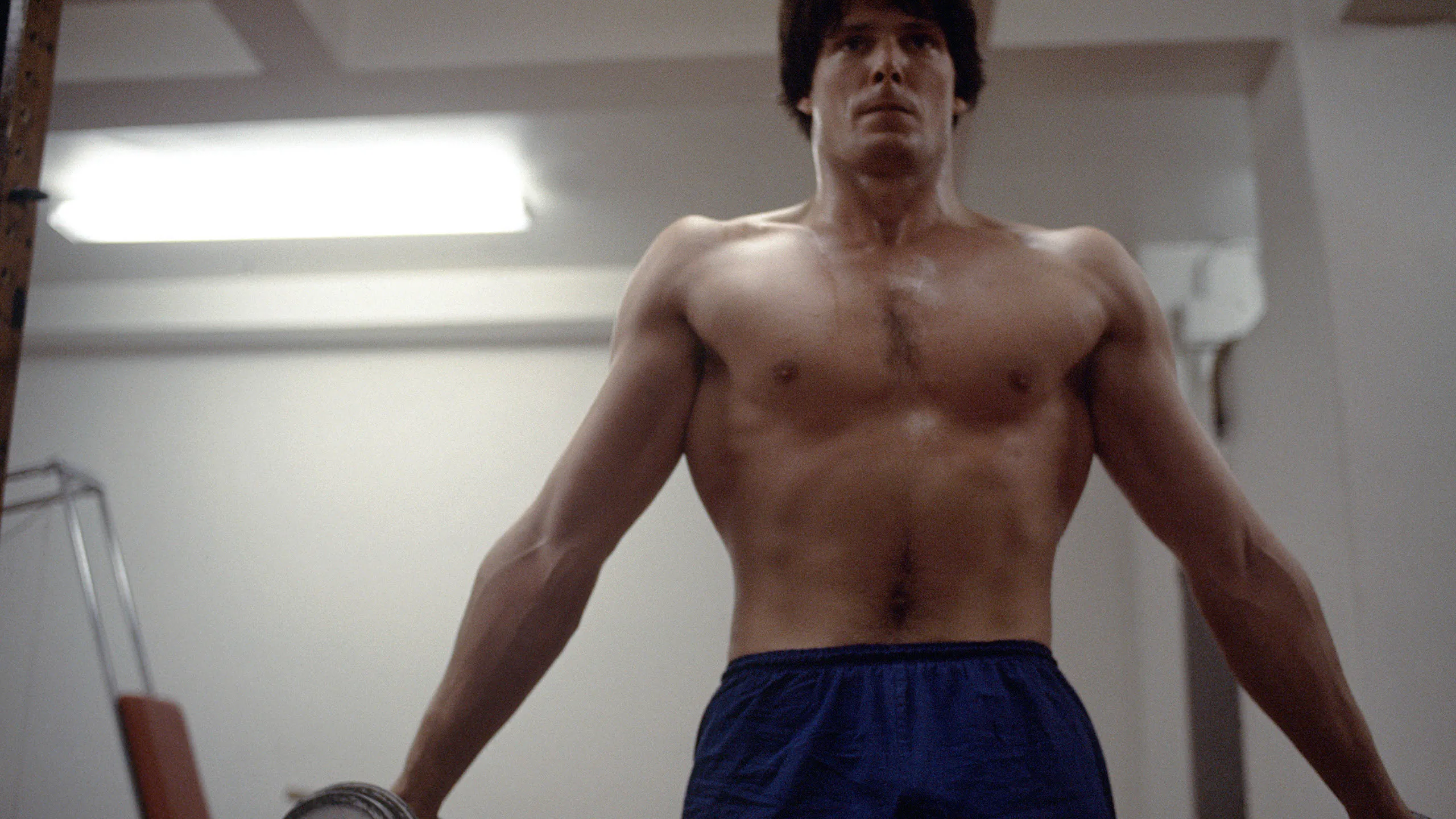
 x3
x3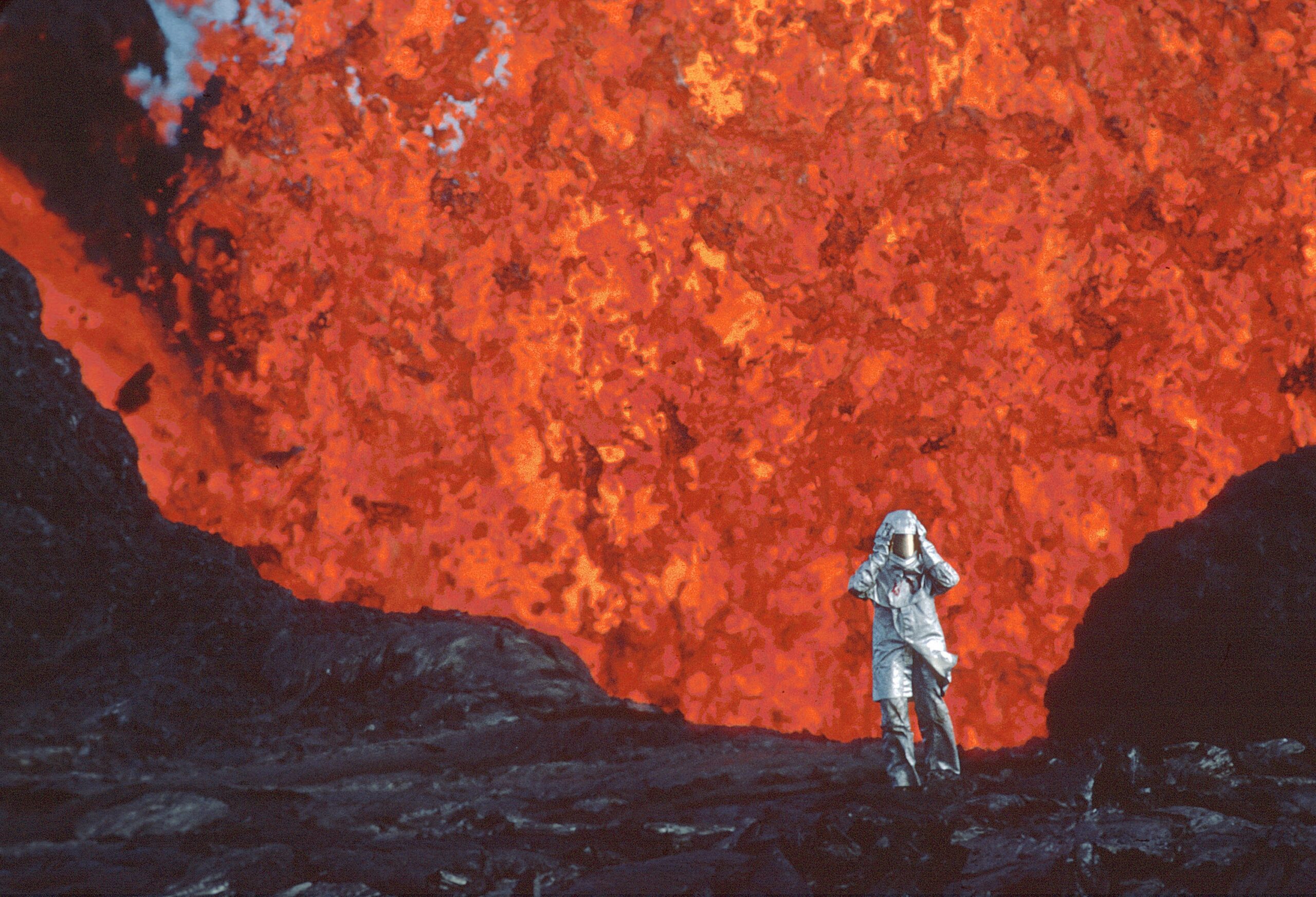
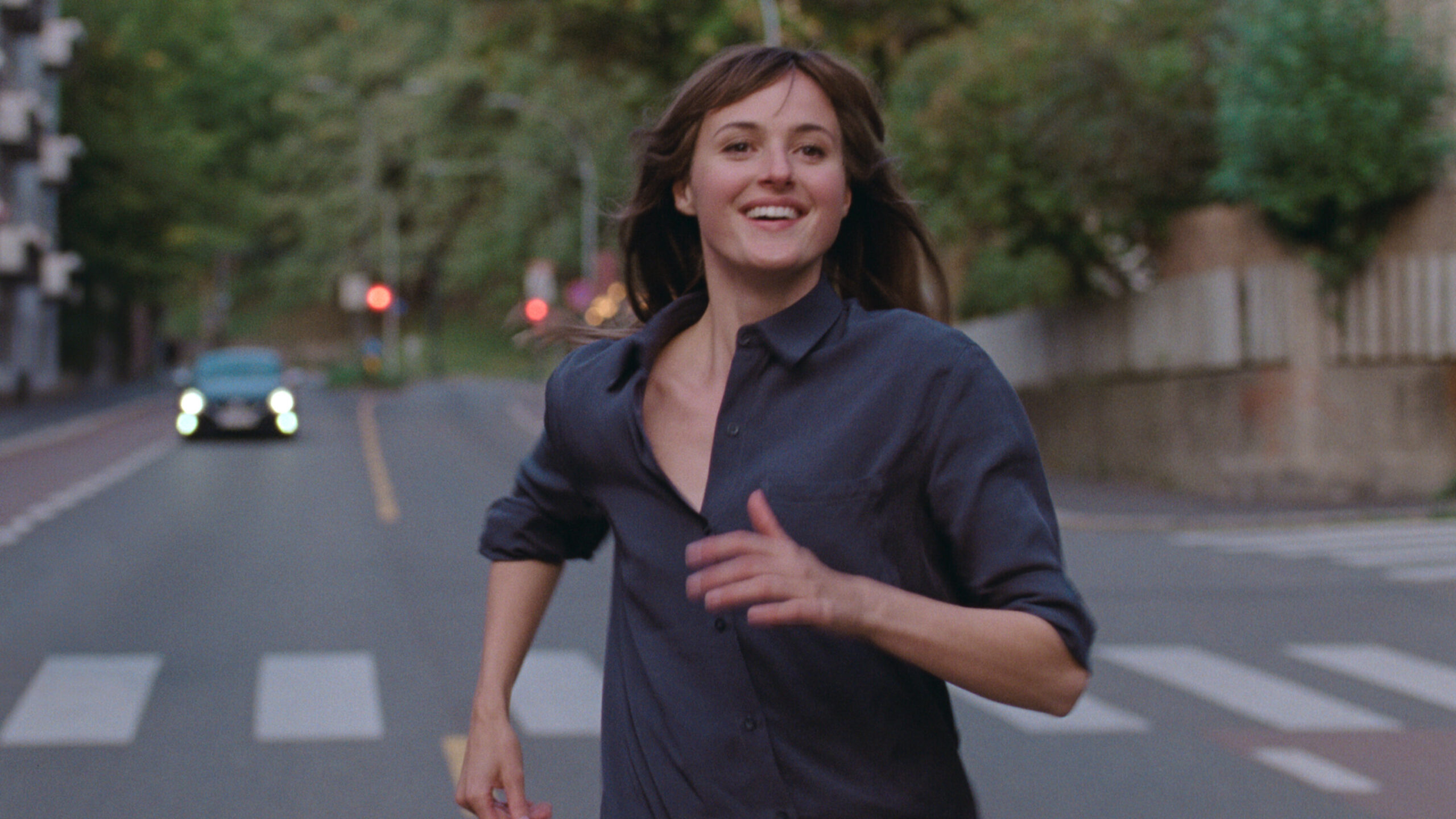
 x2
x2